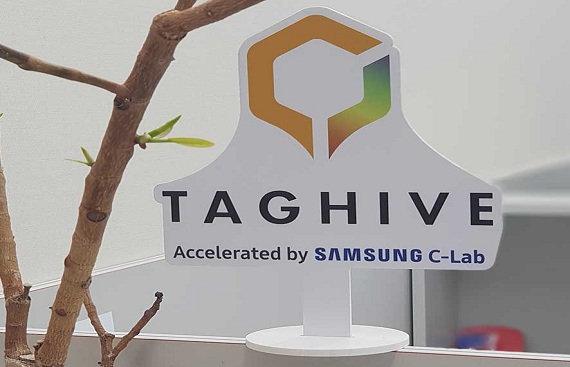TagHive, a startup backed by Samsung, has huge plans for South Korea and India
By Team Startupcity | Monday, 30 January 2023, 11:42 IST

TagHive, an education technology firm formed and operating in South Korea, stands out among the many startups there thanks to its CEO and founder Pankaj Agarwal. Agarwal attended the esteemed Indian Institute of Technology in Kanpur after being born in a tiny hamlet in northern India. Through Creative Lab, a programme run by Samsung Electronics Co., he founded TagHive (C-Lab).
Agarwal spoke fluent Korean during an interview with the Yonhap News Agency and said, "In Korea, I've met other people from international startup companies, but I believe I'm the only one from India. He holds a master's degree from Seoul National University and an MBA from Harvard University. His professional career began when he joined Samsung in 2004 as part of a campus recruit campaign. According to the Indian businessman, "While I was employed by Samsung, I put forth a proposal that was rejected. However, once I elaborated, I was told to go to C-Lab.
His concept involved a wireless electronic signal system between a main receiver, such as a smartphone, and remote controls that could function even in the absence of an internet connection or access to a power source. He took the concept to develop the interactive classroom solution at C-Lab and release TagHive in 2017. Under the "ClassKey" brand, TagHive provides clicker-based classroom response systems and AI-powered self-assessment solutions for use in educational settings.
Each student participates in their class with a clicker in their hands and presses buttons to respond "Yes" or "No" to the teacher's questions or click the numbers to multiple choice questions. The teacher checks the students' answers on the lecturer's screen or smartphone paired with the clickers. "ClassKey" also offers a program to carry out instant polls or elections to pick the classroom president and other leaders.
With just one click, the teacher can assess each student's proficiency and relevant information, such as the proportion of accurate answers, according to Agarwal. "The teacher can adjust the teaching technique to lessen the difficulty if the majority of the pupils were incorrect." According to him, 1,800 sets of "ClassKey," which have 25 clickers in a single unit for a classroom, have been sold in South Korea, and the product's customers are really happy with it. Of the 120,000 total classrooms in the nation, it makes up around 1.5%. Agarwal stated that TagHive is focusing on the larger Indian education industry, which includes 1.5 million primary and secondary schools. In India, the business markets its clicker solution under the "Class Saathi" brand, with Saathi meaning friend in Hindi.
He claimed that last year, about 2,000 sets of "Class Saathi," each with 40 clickers, were sold. In 2019, TagHive established a presence in Kolkata and released the product and subscription service, but was forced to postpone the plan for around three years because to Covid-19. "Our product is really valuable in India because many parts are still poor," he said. "Our device requires no internet or energy." "However, the number of smartphone subscribers in India is rather significant, and almost all teachers own one. They are able to instruct kids using "Class Saathi" even in a small, remote school."
Read More News :


.jpg)
.jpg)